Best Science Fair Projects Using Electronic Components
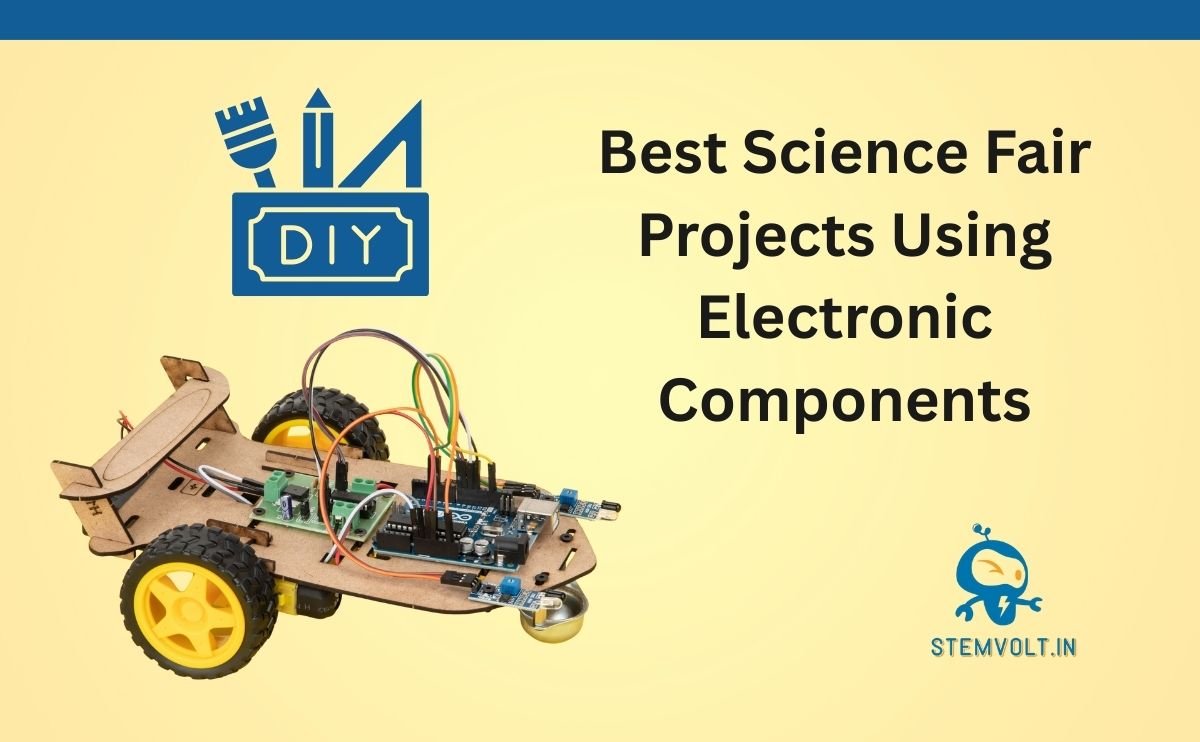
Best Science Fair Projects Using Electronic Components
Science fairs are exciting opportunities for students to explore, innovate, and showcase their creativity. But when it comes to making a project that truly stands out, electronics-based projects are always a hit. From simple circuits to smart robotics, electronic components allow students to bring real-life innovations into their models.
In this blog, we’ll explore some of the best science fair projects using electronic components, covering ideas for beginners, intermediate learners, and advanced students. Whether you’re a school student, hobbyist, or teacher, these projects are perfect to inspire innovation.
Why Choose Electronics Projects for Science Fairs?
Electronics projects are popular in science exhibitions because they:
- Encourage hands-on learning of circuits and sensors.
- Teach problem-solving and logical thinking.
- Offer practical applications (automation, robotics, energy saving).
- Can be made affordable with DIY kits.
- Help students understand the future of STEM, robotics, and IoT.
With just a few components like resistors, motors, LEDs, sensors, Arduino, and batteries, you can create amazing working models.
Top Electronics Science Fair Projects
1. Water Level Indicator Project
- Concept: Uses transistors or an Arduino with sensors to indicate water levels in a tank.
- Learning: Demonstrates conductivity, circuit control, and automation.
- Why It’s Great: Easy to build, practical for daily use, and eye-catching in fairs.
2. Smart Street Light System
- Concept: Street lights that automatically switch ON at night and OFF in the morning using LDR (light-dependent resistor).
- Learning: Introduces renewable energy saving and sensor-based automation.
- Why It’s Great: Shows innovation in sustainable technology.
3. Line Following Robot
- Concept: A small robot car that follows a black line using IR sensors and DC motors.
- Learning: Introduces robotics, sensor integration, and motor control.
- Why It’s Great: A crowd favorite at science fairs—fun to watch and educational.
4. Burglar Alarm System
- Concept: Uses an LDR or ultrasonic sensor with a buzzer to detect intruders.
- Learning: Teaches security applications, sensor working, and buzzer circuits.
- Why It’s Great: Practical and relatable—students love real-life applications.
5. Solar Power Charger Project
- Concept: Create a solar-powered mobile charger using a solar panel, regulator, and battery.
- Learning: Shows how renewable energy can be harnessed effectively.
- Why It’s Great: Highly relevant in today’s eco-conscious world.
6. Traffic Light Controller
- Concept: A mini traffic signal system using LEDs and timers/Arduino.
- Learning: Basics of microcontrollers, timers, and real-world traffic management.
- Why It’s Great: Visually appealing and easy to explain.
7. Wireless Power Transfer Model
- Concept: Demonstrates how energy can be transferred without wires using electromagnetic induction.
- Learning: Introduces concepts of resonance, coils, and wireless technology.
- Why It’s Great: Unique and futuristic, always grabs attention.
8. Automatic Hand Sanitizer Dispenser
- Concept: Uses an ultrasonic sensor and motor pump to dispense sanitizer without touch.
- Learning: Combines automation, health, and safety.
- Why It’s Great: Very relevant post-pandemic, easy to make with DIY kits.
9. Voice Controlled Home Automation
- Concept: Operates home appliances using voice commands with Arduino and Bluetooth.
- Learning: Merges IoT, robotics, and coding basics.
- Why It’s Great: Advanced project that shows future smart home technology.
10. Electric Crane Model
- Concept: Build a mini crane using DC motors, switches, and gears.
- Learning: Demonstrates mechanical + electrical integration.
- Why It’s Great: Students enjoy building it, and it looks impressive at fairs.
Tips to Make Your Science Fair Project Stand Out
- Use a clean, well-labeled circuit diagram.
- Add posters, charts, and real-life applications to explain your model.
- Show a working prototype instead of just theory.
- Practice explaining in simple language so everyone can understand.
- Keep your project safe, portable, and engaging.
Why Buy Components from STEMVOLT?
At STEMVOLT, we provide high-quality electronic components, DIY kits, and robotics parts that make your projects reliable and successful. Whether you need DC motors, Arduino boards, sensors, or complete school project kits, we ensure:
- Affordable prices
- High durability components
- Ready-to-use DIY kits for students
- Fast delivery across India
With STEMVOLT, you don’t just build a project—you build innovation.
Final Thoughts
Science fairs are all about creativity, innovation, and learning. With the right electronics projects, students can showcase not just their knowledge, but also how technology can solve real-life problems. From simple LED circuits to advanced robotics, there’s a project for every skill level.
So, pick your favorite idea, gather your components, and start building your next award-winning science fair project!



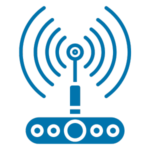










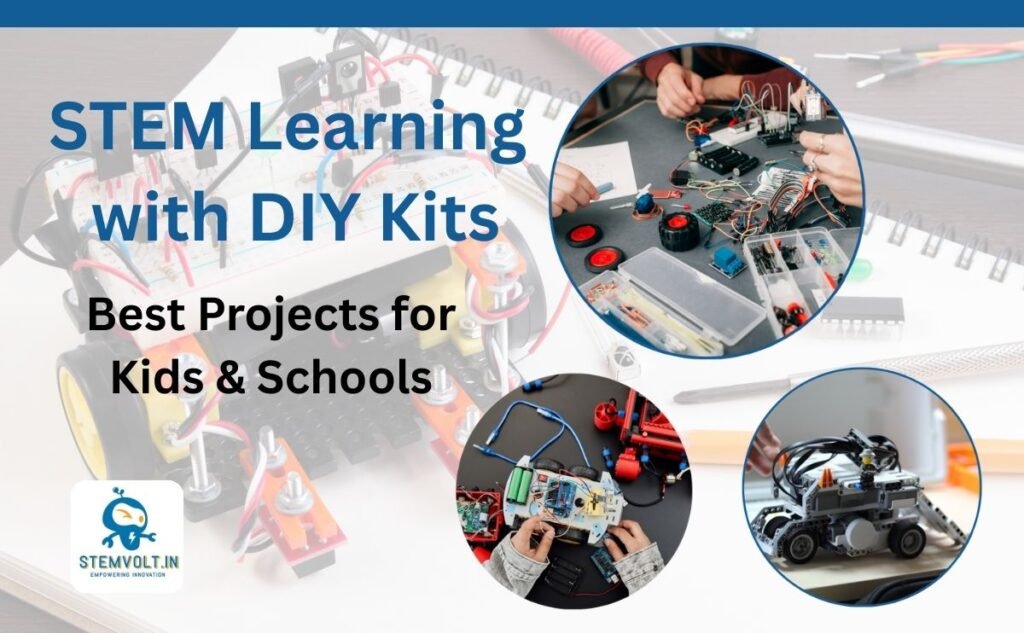
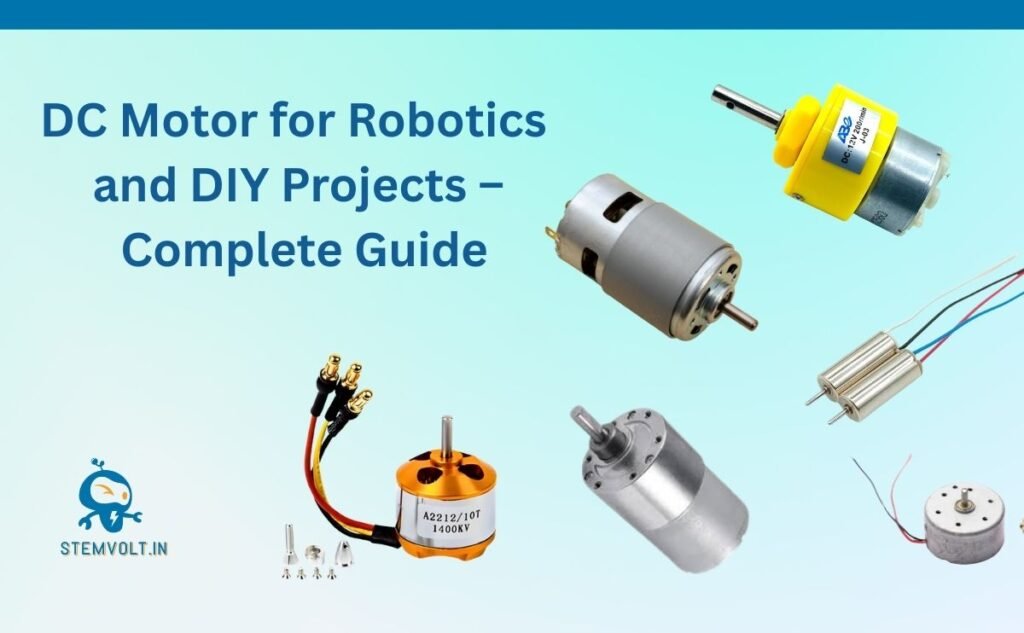

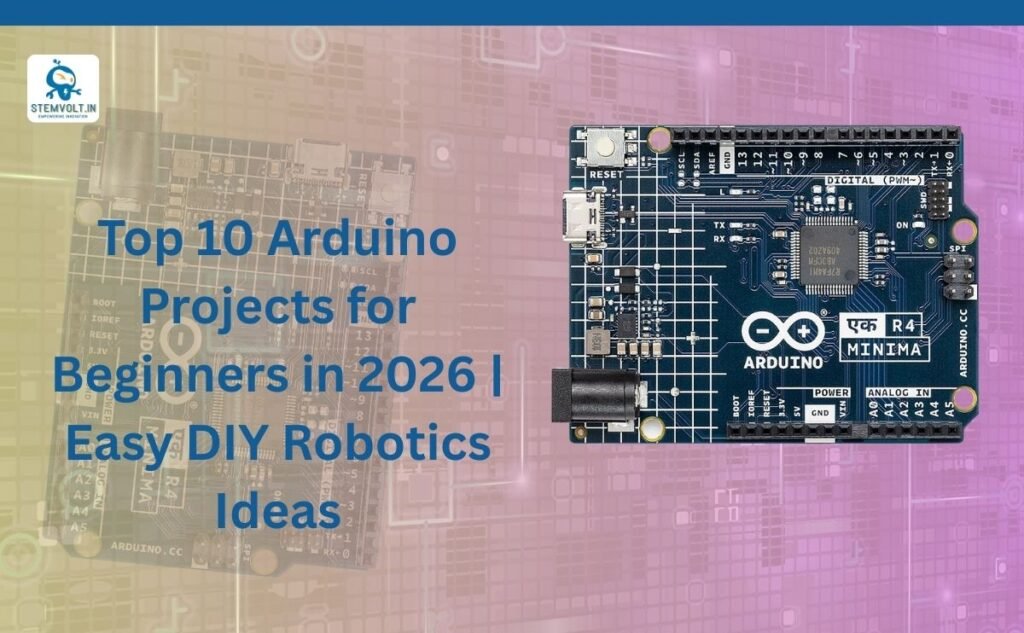


I’m in need of Milliammeters (0-500mA) voltmeters (0v-10v) and multitap step-down Transformers 0-12 v..
More such as electromagnet kit
Can you supply online.
These are for science exhibition models.
YES SIR